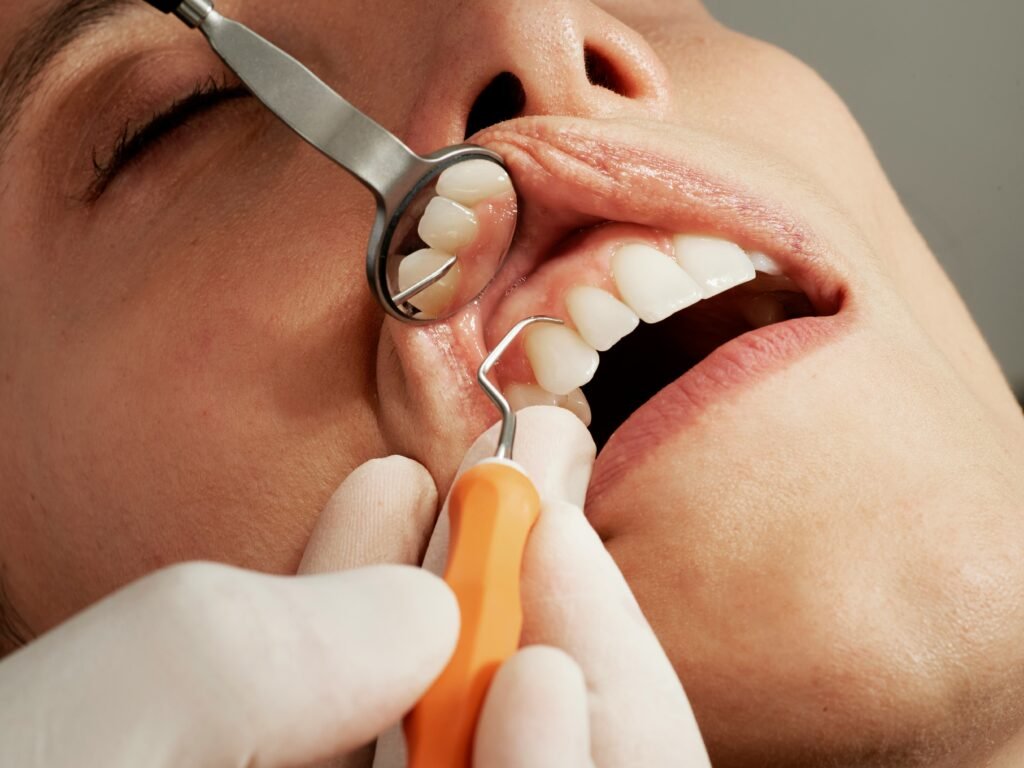In recent years, scientists have discovered an unexpected connection between oral bacteria and Alzheimer’s disease. Research now suggests that the bacteria living in your mouth and on your tongue might play a significant role in brain function, memory, and the risk of neurodegenerative diseases like Alzheimer’s. This new finding emphasizes the importance of maintaining good oral hygiene not just for your teeth, but for your brain as well.
While some types of bacteria are beneficial to your brain health, others can increase the risk of Alzheimer’s disease. This article explores the fascinating relationship between oral bacteria and Alzheimer’s and what it means for your health.
How Oral Bacteria Impact Brain Function
The connection between oral bacteria and brain health has been a topic of growing interest in recent studies. According to research conducted by the University of Exeter, certain mouth bacteria can be either beneficial or detrimental to cognitive function. But how do bacteria from the mouth influence the brain?
Key Findings from the Study:
- Beneficial Bacteria:
Researchers found that individuals with higher levels of beneficial bacteria like Neisseria and Haemophilus showed better memory, attention, and task performance. These bacteria also contributed to higher levels of nitrites in the mouth, which are essential for proper brain communication and memory formation. - Harmful Bacteria:
Conversely, harmful bacteria such as Porphyromonas were found more often in people with memory problems. A higher presence of this bacterium was linked to poor cognitive function, suggesting its potential role in accelerating the onset of Alzheimer’s disease.
The Science Behind Oral Bacteria and Brain Health
How Oral Bacteria Enter the Brain:
The study highlighted how certain harmful bacteria may impact brain health by entering the bloodstream. Once in the bloodstream, these bacteria can reach the brain, potentially causing damage. Alternatively, they can disrupt the balance of beneficial and harmful bacteria in the mouth, reducing the conversion of nitrate (found in vegetable-rich diets) to nitric oxide. Nitric oxide is crucial for effective brain communication and memory.
The Role of Nitrite Levels in Cognitive Function
What Is Nitrite and Why Does It Matter?
Nitrites are compounds that play a crucial role in brain health. They are primarily formed through the consumption of nitrate-rich foods like vegetables. Nitrites contribute to the production of nitric oxide, a chemical that helps neurons communicate with each other and aids in memory formation.
- High Nitrite Levels: People with higher levels of the beneficial bacteria mentioned earlier (Neisseria and Haemophilus) had higher nitrite levels in their mouths, which were linked to better brain function.
- Low Nitrite Levels: On the other hand, individuals with lower nitrite levels, often linked to the harmful bacteria Prevotella, were found to have poorer cognitive performance, including increased risk factors for Alzheimer’s.
Oral Bacteria and Alzheimer’s Risk: The APOE4 Gene Connection
In this study, researchers found a direct connection between oral bacteria and the Alzheimer’s disease risk gene, APOE4. The presence of the bacteria Prevotella was more common in individuals who carried the APOE4 gene, a known risk factor for Alzheimer’s.
- APOE4 and Brain Health: The Prevotella bacteria group was linked to reduced nitrite levels, which could contribute to cognitive decline over time. People with the APOE4 gene, who also had this bacterial imbalance, showed higher vulnerability to developing Alzheimer’s disease.
Oral Hygiene and Alzheimer’s Prevention: Simple Steps for Better Brain Health
The findings from the University of Exeter’s study suggest that improving oral hygiene might not just help with gum health, but could also protect against cognitive decline. Here are some simple ways to maintain a healthy mouth and possibly lower the risk of Alzheimer’s disease:
1. Regular Dental Checkups:
Routine dental visits can help identify harmful bacteria in your mouth early on. Regular checkups could also provide insights into how your oral health impacts your brain function.
2. Improve Oral Hygiene:
Brushing and flossing your teeth regularly is essential for keeping harmful bacteria at bay. Make sure to use fluoride toothpaste and maintain a proper brushing technique.
3. Healthy Diet:
A diet rich in vegetables, fruits, and whole grains can improve oral and brain health. Foods that increase nitrate levels in the body, such as leafy greens, are particularly beneficial for maintaining good brain function.
4. Consider Probiotics:
Probiotics may help balance bacteria in the mouth and gut. Consider adding probiotic-rich foods to your diet or taking supplements after consulting with a healthcare provider.
A New Approach to Alzheimer’s Prevention
The emerging link between oral bacteria and Alzheimer’s provides a new perspective on preventing cognitive decline. By maintaining good oral hygiene and adopting healthy habits, we may be able to protect both our gums and our brains. This study underscores the importance of taking care of our oral health not just for physical well-being, but also for mental and cognitive health as we age.
As researchers continue to explore the relationship between bacteria and brain function, these findings could pave the way for new strategies to prevent Alzheimer’s and improve quality of life for aging individuals.




